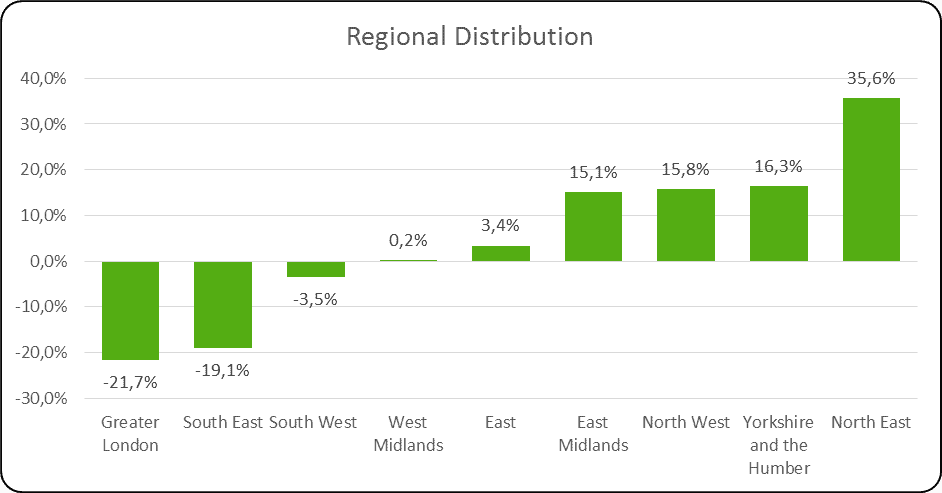Exasol today released analysis of the last seven years of antianginal prescription data ahead of the Christmas festivities and the biggest month for heart attacks.
Key findings include:
- The prescribing rate of Antianginal medicine has increased by nearly 15 per cent in 7 years
- The prescribing rate drops by over 10 per cent between December and February
- There is a significant difference in regional prescription rates, with over a third more than the average in the North East and 20 per cent less in the London and South East.
New research by Exasol, the provider of the fastest database for data analytics, has found that heart medication prescriptions peak in December, the month of indulgence. However, by the month of February, heart medication prescribing drops by 10 per cent, indicating that improved lifestyle choices in January – either through dry January, taking up gym membership or watching your diet – has a measurable effect on health.
Exasol analysed data released by NHS Digital. The data runs over 7 years from August 2010 to August 2017 and contains 844 million rows of data. The data was analysed by a data scientist working for EXASOL, using its high performance Loading...in-memory analytic database and found several trends in antianginal prescriptions.
Regional differences
Across England there are significant regional differences in the number of antianginal prescriptions. Overall the North East prescribes over a third more than the national average and at a county level, Rutland, Lincolnshire and Northumberland are the highest prescribers. Boston in Lincolnshire was recently named Britain’s most obese town, a significant risk factor for heart disease.

As the death rate from Cardiovascular disease is going down, the number of people living with it is increasing. The statistics show that year-on-year the prescribing of antianginals, which is closely correlated with the numbers with the disease, increasing by 2% on average.
Aaron Auld, CEO, Exasol says: “When analysing the data, we can see definitive proof that seasonal lifestyle habits have an impact on health. There are also regional differences that are worth investigating.
“With the right data and the right technology, you can turn any problem into a data problem and uncover information to help address it. Heart disease remains a big issue across the UK, and the numbers show that it is on the rise. The use of data can help find solutions to the problem. To analyse such enormous data-sets fast, returning answers from the data within seconds, requires the right tool and we hope the findings help to further increase awareness of the risk factors associated with this disease.”
If you would like more information on specific areas, please contact Exasol@brightbee.co.uk or 020 8819 3170.
About Exasol
Exasol is passionate about helping companies to run their businesses smarter and drive profit by analyzing data and information at unprecedented speeds. The company develops the world‘s fastest database for analytics and data warehousing and offers first-class know-how and expertise in data insight and analytics. The in-memory analytic database is the first database to combine in-memory, columnar compression and massively parallel processing, and is proven to be the world‘s FASTEST, topping the list in the Loading...TPC-H Benchmark tests for performance. For more information, go to www.exasol.com